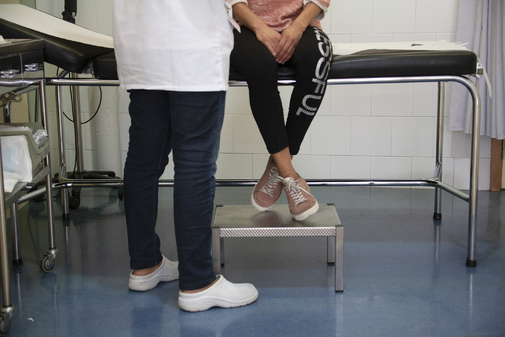- Report: Sexual harassment at work: cases increase but complaints fall by half
11% of doctors have been victims of sexual harassment by a patient , according to a survey prepared by Medscape, while 3% percent have suffered from a partner in the last three years. In the online survey, 2,143 doctors participated, 54% men and 46% women.
Regarding sexual harassment by patients, the most common behaviors are for the patient to act in a manifestly sexual way (45% of cases), request an appointment to the professional (36%), try to touch or thumb the doctor (18% ), request sex or send messages and photos to the professional (9%).
Sexual harassment by the patients was more frequent towards men (56% of the participants) than towards women (36%), although it is more common to ask them for an appointment. Faced with this situation, the professionals reacted by asking another partner to be present with them in consultation or rejected sexual proposals.
Peer harassment
Regarding sexual harassment by partners, it is more common towards doctors (5% of respondents) than towards doctors (1%). The most frequent behaviors are sexual comments about his body or lascivious looks (60%), unwanted physical touching (49%) and requests for appointments and deliberate violation of personal space (31%).
In 5% of cases, stalkers offered a promotion or salary increase in exchange for sex, while 2% threatened the victim with reprisals if they refused.
In 70% of cases, the stalker was another medical colleague, and a fellow nurse in 9%. In almost half of the cases, it was a partner of the same hierarchical level and in a third of the cases, a superior. Less than half of the victims (43%) faced the stalker and 74% did not report him ; When they did, it was before a direct supervisor or a partner.
5% quit their job
Harassment episodes would occur mainly in places such as the corridor of the workplace, in the administrative area not accessible to patients or outside the workplace facilities. 7% of doctors surveyed believe that sexual harassment behaviors are tacitly accepted in their workplaces. In addition, 3% say they have witnessed a case.
55% of doctors said that the harassment affected their behavior. 32% avoided working with certain colleagues and 15% thought about leaving their jobs, with 5% finally leaving . In addition, as a result of the harassment, 31% recognized that they had resorted to social isolation (14%), sleep more (6%) or resort to drugs and binge eating (5%).
According to the criteria of The Trust Project
Know more- Science and Health
Health Condemnation of two million euros because a doctor ignored a stroke warning
HealthThe famous dentist: "Trump's smile is as fake as he is"
Climate crisis Coastal flooding will affect 210,000 Spaniards in 2050

